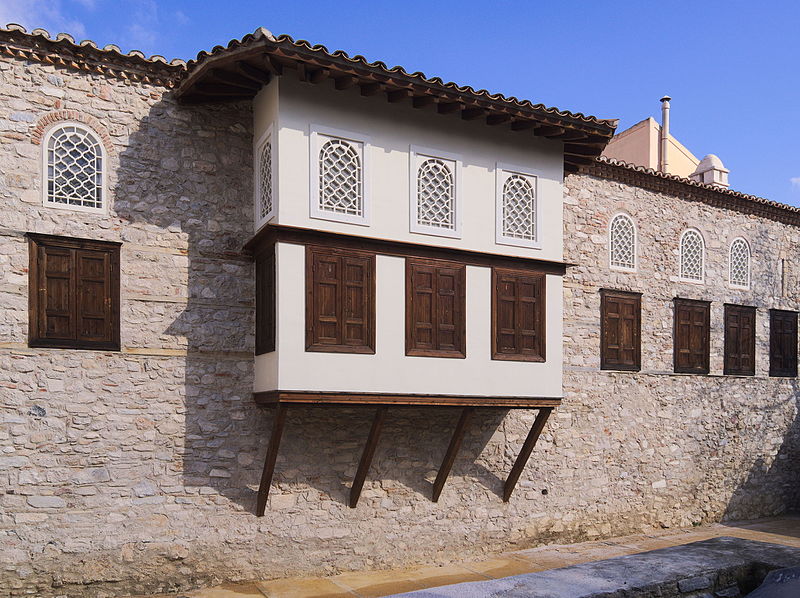
St. Philothea was born in Athens on November 21, 1522 to an illustrious and wealthy family. They had no other children, but after fervent prayer her mother gave birth to a daughter whom they named Revoula. Against her will, she was married at the age of 14 to the nobleman who abused her. When he died in 1539, she was only 17, beautiful and wealthy and her parents insisted that she get remarried. Instead, she remained at home, spending much of her time in prayer. The family wealth gave her the opportunity for charitable work, and while still a young woman she had gained the respect and love of the community.
When her parents died in 1549, Revoula found herself the owner of extensive holdings. (Her house, now the oldest in Athens, is a museum dedicated to her and her work.) She embraced the monastic life and took the name Philothea; around 1551, she established a women’s monastery. There the young nuns taught other young women handiwork, weaving, housekeeping and cooking. In this way, she prepared young women who came to her for the domestic life.
Philothea is primarily remembered for her abundant philanthropy. The convent opened several charities in Athens and on the Aegean islands, including a second, more secluded monastery at Patesia. She also built hospices, homes for the elderly, and schools for the girls and boys of Athens. One of her more controversial activities was to buy the freedom of Greeks taken as slaves by the Ottoman Turks, especially women taken to the harems. She offered shelter to the young women, some pregnant. Despite being hunted by the Turks, she helped them escape secretly to Tzia, Andros, Aegina and Salamina, where they were safe. (We would describe her work as rescuing those trapped in human trafficking or sexual exploitation and slavery.) In a 22 February 1583 letter to the Venice, Philothea asked for donations to help pay off her debts from ransom money, duties, bribes, and taxes that she owed to the occupying Turks. Her monasteries were frequently plundered, and the farming and agricultural program, which were a basic source of sustaining her work, devastated.
Four women who had been enslaved by the Ottoman Turks in harems were able to escape and ran to her for refuge but the women were traced and Philothea was beaten and brought before the magistrate who put her in prison. Friends intervened and paid the district governor for her release. As her fame grew, so did the Turkish animosity against her. On 3 October 1588, four Ottoman mercenaries broke into the monastery at Patesia during the evening vigil service and beat her severely. She remained bedridden and died of her injuries on 19 February 1589.
Philothei is considered a martyr by the Orthodox Church. Just a few years after her death, she was canonized a saint. Her memory is venerated on February 19 and she is considered one of the patrons of Athens. Her relics are interred in the cathedral in Athens. The Filothei district of Athens is named after her.
